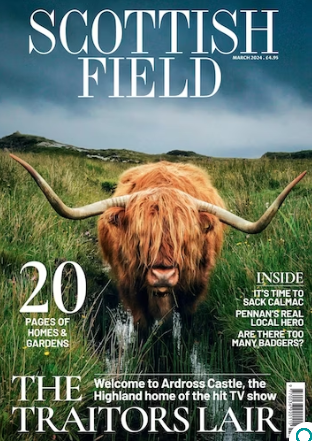The Game and Wildlife Conservation Trust in Scotland has announced a broad-reaching programme of spring courses for gamekeepers and land managers.
The courses cover snaring, heather burning, mustelid control, grouse health and disease, corvid control and lamping, and run at various venues through February, March and April. Successful candidates on these courses will receive a GWCT certificate that helps to demonstrate good due diligence is in place.
1. Snaring
This is a Scottish Government approved fox and rabbit snaring course, providing those attending with the necessary certification to obtain their ID number which by law must be attached to all snares set in Scotland. Emphasis is placed on welfare and best practice.
It will take place at Glenogil Estate, Angus
4 February, 9.30am start; Hopetoun Estate, West Lothian, 2 March, 9.30am; Amulree Village Hall, Perthshire, 5 March, 1.30pm; Glenlochy Estate, Morayshire, 10 March, 9.30am.
48
2. Heather burning
This half-day course covers the latest Muirburn Code, aims and benefits of heather burning (for grouse and grazing animals), current legislation, fire and personal safety issues, preparation of burning plans, out of season burning licences and general muirburn guidance. Recommendations made in the Werritty grouse moor management review report will also be highlighted.
Amulree Village Hall, 6 March, start 10am.
3. Mustelid control (tunnel trapping)
This course is designed to keep those using approved spring traps up to date with the latest legal and humane control issues.
Glenogil Estate, 4 February, 1.30pm start; Hopetoun Estate, 2 March, 1.30pm; Amulree Village Hall, 5 March, 10am; Glenlochy Estate, 9 March, 10am.
4. Grouse Health and Disease
This course was first introduced last year and covers the documenting of evidence for grouse moors to demonstrate that they are following best practice, focusing also on latest techniques for the control of strongyle worm burdens and tick in red grouse with recommendations for the correct use of medicated grit. The course runs in conjunction with the Moredun Research Institute and leading veterinary surgeons.
Hopetoun Estate, 3 March, 10am start; Amulree Village Hall, 6 March, 1.30pm; Glenlochy Estate,
10 March, 1.30pm.
5. Lamping
This half day course is designed to help ensure that shooting at night is safe, effective and kept within the letter of law. The session necessarily covers health and safety, quarry identification, choice of appropriate weapon and equipment, current legislation within Scotland and best practice approaches to lamping.
Hopetoun Estate, 3 March, 1.30pm start; Glenlochy Estate, 9 March, 1.30pm.
6. Corvid control
Dates for corvid control courses are provisional at this time. Until significant changes to the current General Licences are announced on 1 April 2020, the 2019 licences remain in place.
Provisional dates are as follows:
Amulree Village Hall, 7 April, 1pm start; venue to be confirmed (Moray likely), 8 April, 1pm; Hopetoun Estate, 9 April, 10am.
Hugo Straker, GWCT senior Scottish adviser, said: ‘Clearly it is important that our courses are delivering the most up-to-date information and techniques in line with regulations and codes of practice as current at the time.
‘It is vital that all those involved with game management in the countryside are aware of what is right, wrong, what certification is required and when.
‘Ignorance is not an excuse, and our practical range of courses sets out to provide the clarity needed for those managing game and wildlife in Scotland.’
To register for any of the GWCT courses in Scotland either telephone 01738 551511 or e mail ijohnston@gwct.org.uk
The Game and Wildlife Conservation Trust is an independent wildlife conservation charity which carries out scientific research into Britain’s game and wildlife.
GWCT advises farmers and landowners on improving wildlife habitats and employs 22 post-doctoral scientists and 50 other research staff with expertise in areas such as birds, insects, mammals, farming, fish and statistics. GWCT undertakes its own research as well as projects funded by contract and grant-aid from Government and private bodies.
The Trust is also responsible for a number of Government Biodiversity Action Plan species and is lead partner for grey partridge and joint lead partner for brown hare and black grouse.
TAGS

